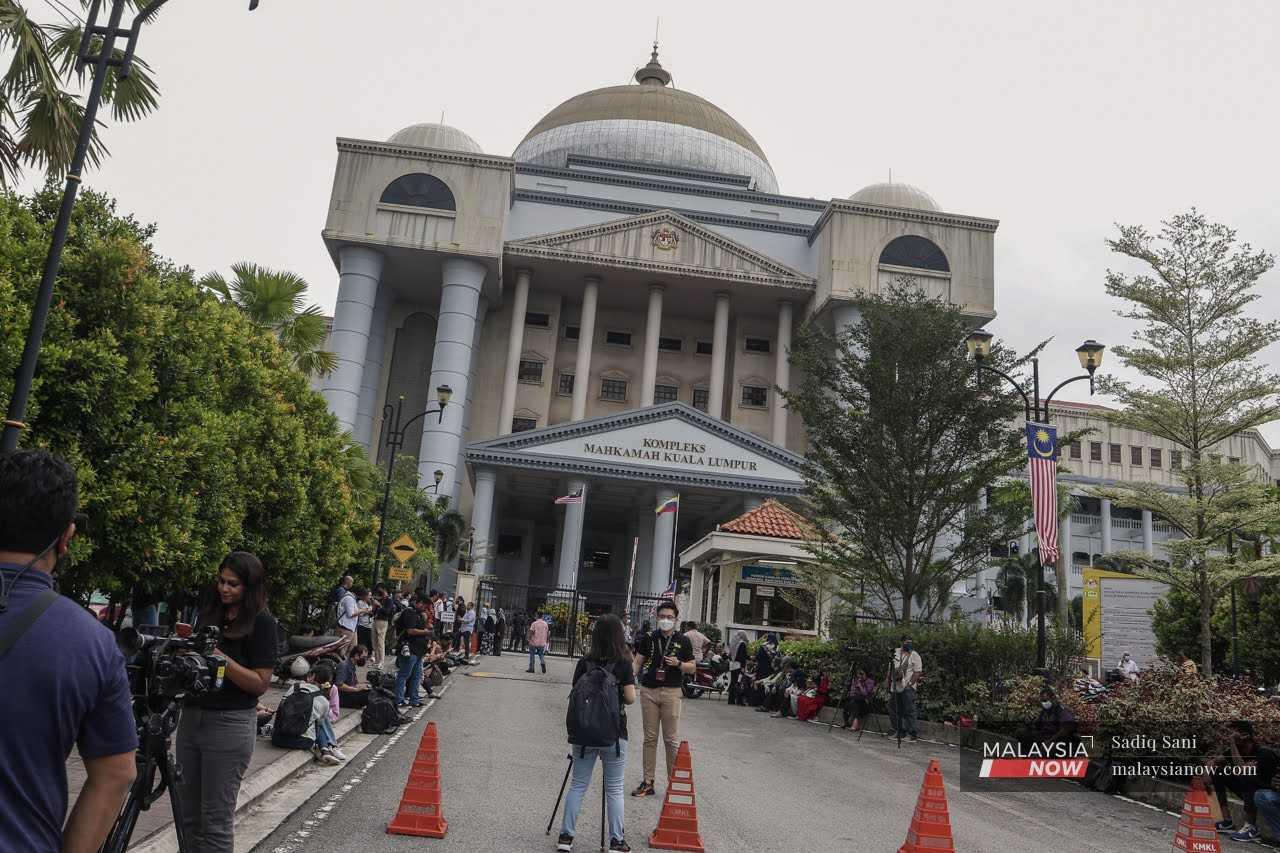Rosmah's lawyer argues risk of bias due to 'leaked judgment'
Jagjit Singh says trial judges must be able to discharge their duties impartially, free from outside influence.
Just In
Rosmah Mansor’s defence team told the Kuala Lumpur High Court today that there was a risk of bias on the part of judge Mohamed Zaini Mazlan if he continued to hear her case due to the purported leak of a "draft judgment".
Rosmah's counsel Jagjit Singh said while they had full confidence that the judge would not be influenced by the purported document, the risk of bias remained.
He submitted that trial judges must be able to discharge their duties impartially, free from outside influence.
He said the purported draft judgment was prepared by an individual, or more than one person, who had no authority.
"Hence, how can the prosecution say that this allegation (purported draft judgment) is hearsay?" he said.
Jagjit also submitted that the prosecution had claimed the purported draft judgment was a piece of research and had challenged the recusal application by claiming it was made on evidence based on hearsay.
"A trial judge must be able to deliver decisions without improper influence, direct or indirect, from any other source. The leaked document was prepared by more than one person.
"The leaked document was disturbing when it appeared on social media. But it has come out, we cannot hide it under a coconut shell. The leaked documents were not the actual written judgment against Rosmah, but copies of a write-up by the Research Unit of the Kuala Lumpur High Court," he said.
Jagjit also said that the two posts on the Malaysia Today website were widely shared on social media.
He claimed that dark clouds had descended on the judiciary since Aug 23, when a judgment in Najib Razak’s SRC International case was allegedly leaked before the Federal Court pronounced its verdict.
He said this was similar to what happened in 1988, referring to the removal of then chief justice Mohamed Salleh Abas in what is historically known as the judicial crisis.
Jagjit then referred to the two documents which he claimed were prepared by somebody else.
Zaini: Since you want to call a spade a (piece of) garden equipment, let's just get to the point. What do you call these documents?
Jagjit: To put it bluntly and simply, it has been prepared at the request and behest of someone in authority.
Zaini: Answer my question. What do you call these two documents?
Jagjit: I cannot label them but they are incriminating.
Zaini: What do you call your submission? What is the aim of your written submission?
Jagjit: To persuade your lordship. But this (the document) cannot persuade your lordship because you have to make an independent mind.
The judge then asked again what the documents were, and Jagjit said he could not answer.
Zaini: It is in your affidavit, you say it (the document) is my judgment. Having heard you now, I'm confused. Are you saying this is a draft judgment prepared for me?
Jagjit: Yes.
Zaini: I'm glad we can clarify that. Do you see these two documents as opinion or a draft judgment?
Jagjit: To me, it doesn't seem like an opinion but a draft judgment written by a third party.
Zaini: Are you insinuating that I would therefore use the draft judgment (in my decision)?
Jagjit: That's where the real danger of bias comes in… the perception.
Zaini: I think I understand where your angle is.
Meanwhile, lead prosecutor Gopal Sri Ram submitted that Malaysia Today, the website which carried the so-called leaked judgment, was not a credible source.
He said the writer of the articles was a fugitive hiding somewhere in the UK.
"He is a rogue journalist. His views alter according to how much he is paid. Even if your lordship requested for the opinion written by the research unit, even if you had gone through it and did your judgment, it would have been perfectly ordinary," he said.
Sri Ram, who is a former Federal Court judge, shared that during his time, the chief justice then had suggested for him to have his own research team, but he rejected the idea.
"But that's just my way. Each judge has his own way," he said and asked the court to dismiss the application.
Subscribe to our newsletter
To be updated with all the latest news and analyses daily.
Most Read
No articles found.
